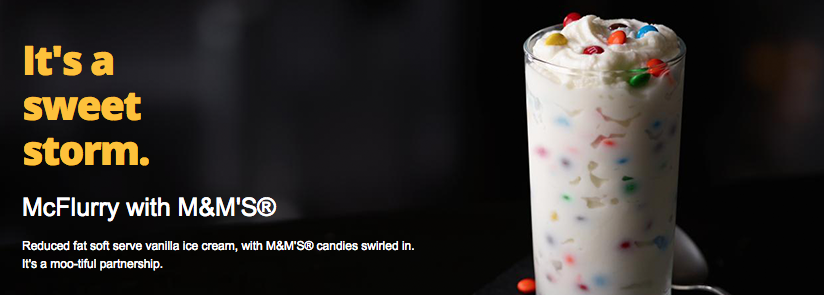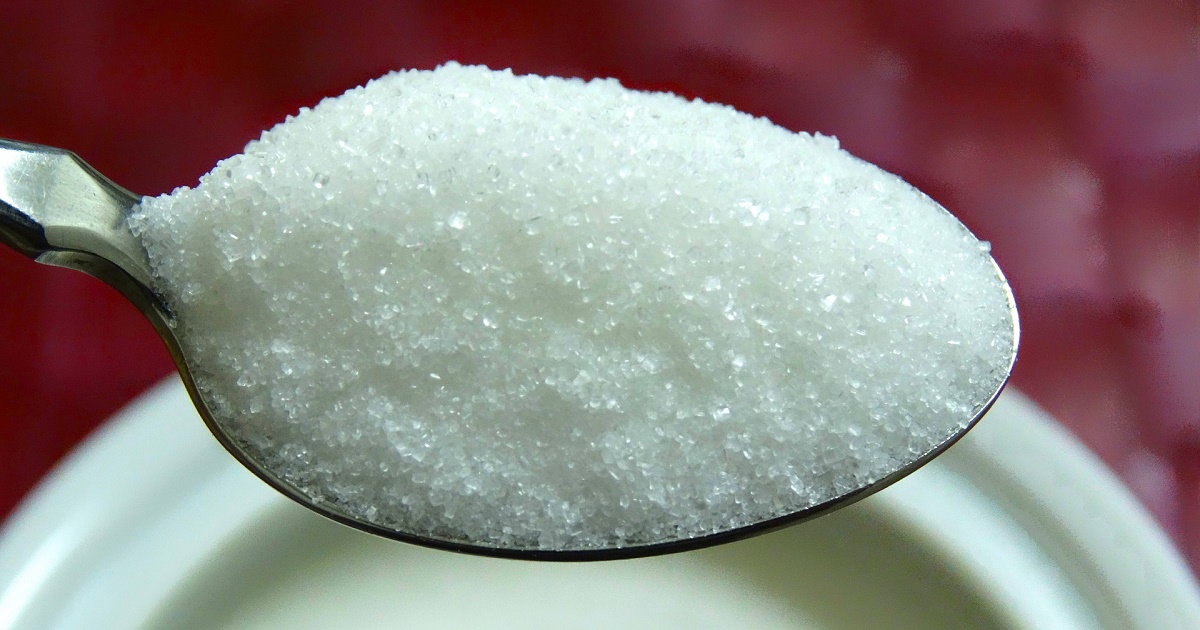This Candy Company Is Worried McDonald's Is Too Sugary
By:
The world's largest confectionery is concerned that its candy is being used in desserts that are too sweet for public consumption.
Mars Inc., which makes M&Ms, is reportedly in talks with several burger chains about pulling its candies from soft-serve treats, including the McDonald's McFlurry, Reuters reported this week.
The effort is part of a broader campaign by the company to introduce more transparency and push for accordance with health guidelines around sugar consumption.
According to the McDonald's website, a 12-ounce McFlurry with M&Ms — alternately described as "a sweet storm" and a "moo-tiful partnership" — contains 89 grams of sugar. A smaller "Snack Size" version only has 59 grams.
 McDonald's - mcdonalds.com
McDonald's - mcdonalds.com
The U.S. Food and Drug Administration recommends that adults consume no more than 50 grams of sugar per day, while children should consume no more than 25 grams.
The company is concerned that in the context of fast-food treats and a daunting national health crisis, its candies are contributing to Americans eating too much sugar. Reuters reports, according to an industry source:
"The elimination of M&Ms — which contain 7.5 teaspoons of sugar, about a third as much as the large McFlurry, per serving — is just one idea on the table; also under consideration with McDonald's... and other partners, are recipe reformulations."
 Pixabay / Hebi65 - pixabay.com
Pixabay / Hebi65 - pixabay.com
In recent months, big food producers such as Mars and Nestlé have lined up behind efforts to reduce sugar consumption and improve added-sugar labeling practices, Quartz reported.
Mars spokesman Jonathan Mudd told ATTN: in an emailed statement that the company was working with "suppliers and customers" to limit added-sugar intake, but he did not specifically address the talks with McDonald's or other fast-food chains.
"Our commitment to limiting the added sugars in our products to less than 10 percent of total energy/caloric intake is based on the recommendation of the world’s leading health authorities — including the World Health Organization, the US Dietary Guidelines Advisory Committee and the UK Scientific Advisory Committee on Nutrition. This commitment, which we announced last year, applies to all Mars branded products. We are now working alongside our suppliers and customers to bring this commitment to life."
ATTN: reached out to McDonald's for comment, and will update this story accordingly.
High-sugar diets have been linked to adverse health conditions, including weight gain and diabetes. A 2014 study also found that adults who consumed more than 25 percent of their daily calories in sugar were almost three times as likely to die from heart disease compared to those who got less than 10 percent of daily calories from sugar.
